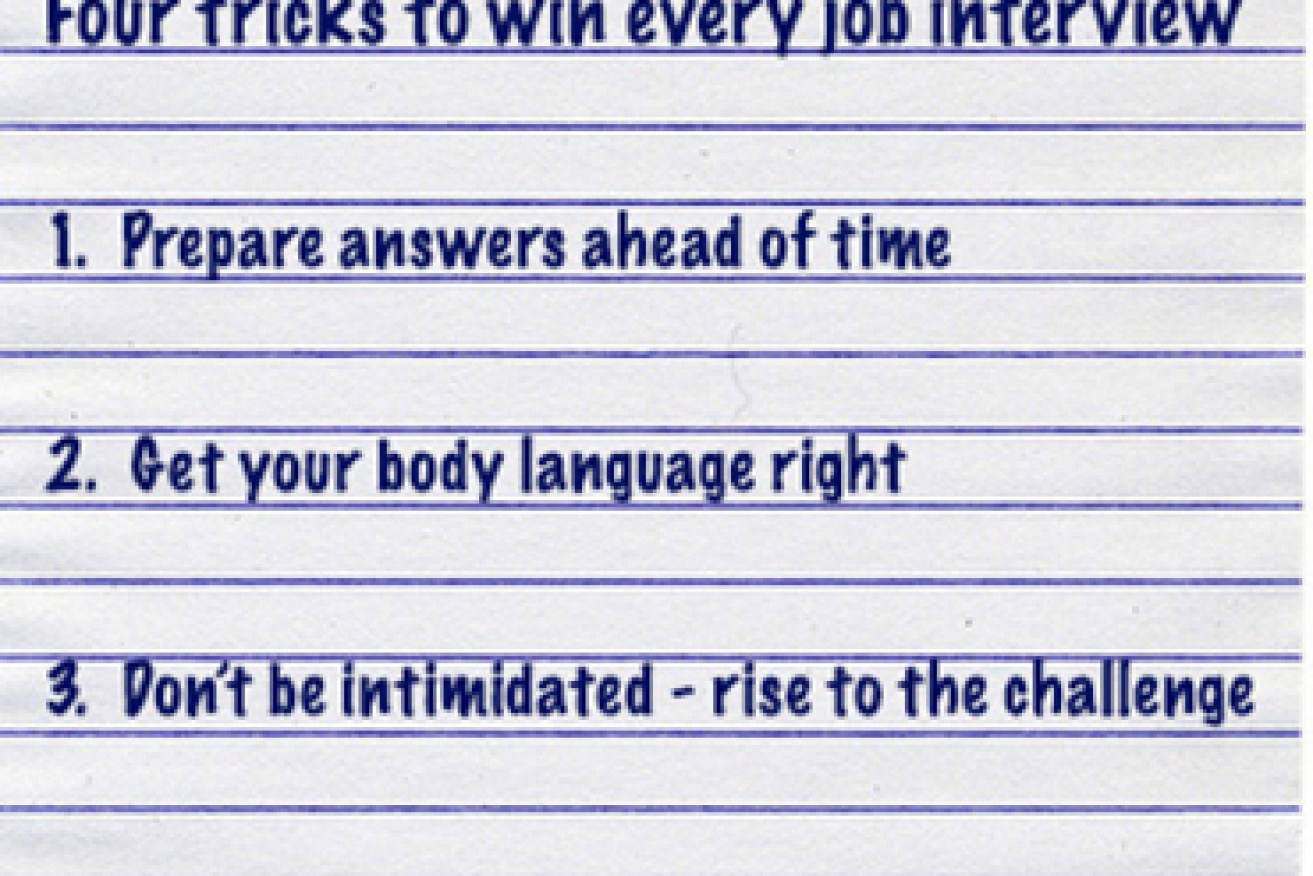You’re hired! Four tricks to win every job interview

A spectacular first 10 seconds is enough to land you the job, regardless of what happens in the remainder of the interview.
That, at least, is the view of Laszlo Bock, Google’s head of human resources.
Mr Bock, who is officially known by the Googlian title ‘Senior Vice President of People’, argues that hiring managers decide if a candidate is intelligent, ambitious and trustworthy after 10 seconds of meeting them.
• How you can avoid being a bad boss
• ‘You’re stuffed’: vulnerable young workers exploited
• Do you suffer from imposter syndrome?

Google – where names like ‘Senior Vice President of People’ are the norm. Photo: Getty
He explains this theory in a new book, Work Rules! Insights from inside Google that will transform how you live and lead, which he validates with findings from a University of Toledo study.
As part of this study, the researchers got students to watch small 10-second slices of video from recorded interviews. They then asked the students to assess the candidates.
The results were striking: after 10 seconds, the students made very similar judgements to those made by hiring managers who conducted the whole interviews.
In a LinkedIn post about his book, Mr Bock describes this phenomenon as proof that interviewing is just ‘confirmation bias’ – that is, that the majority of the meeting is just a means of asking questions to confirm or deny the impressions made in the first 10 seconds.
Generic questions like “Tell me about yourself”, “What is your greatest weakness?” and “What is your greatest strength?” are ways of ‘confirming bias’ according to Mr Bock.
So assuming Mr Bock is right, how should you use those precious first 10 seconds? Here are four key tips.
Prepare your answers ahead of time
Mr Bock says the lesson for job seekers is obvious: make a great first impression and prepare for those types of generic and searching questions.
Mr Bock urges people to write down answers and prepare back-up plans for surprises. Most interviewers, he says, “don’t know how to interview well”, so he urges people to take advantage of that flaw.
 Get your body language right
Get your body language right
Director of career support and training agency Career Consultancy, Catherine Cunningham, told The New Daily that Mr Bock’s assertion about first impressions is “absolutely correct”.
Ms Cunningham explained that in her experience training people for job interviews, words only become meaningful when a candidate’s presentation and voice are spot on upon initial contact.
“This doesn’t mean that words aren’t important,” Ms Cunningham said.
“It means if there is a disconnect between the message your words send compared to the impression your voice and body language gives them nobody will take notice of your words.”
She believes that poor first impressions are a huge hurdle for people who do badly in their job interviews. Her consultancy spends a lot of time and effort training people to make a good start to their meetings.
Don’t be intimidated – rise to the challenge
Ms Cunningham is adamant a candidate need not be intimidated or put off by the interview style of the hiring manager.
“We have no control over how skilled the interviewer is,” Ms Cunningham said.
“All we can control is how skilled we are going into the meeting. So we say let’s make sure we have that settled and control the things we can – making a great first impression is vital to that.”
Answer questions with specific examples
Along with a good first impression she offers the advice that ‘specificity of answer’ is extremely significant when giving examples of one’s skills.
For instance, if asked for “a time when you had to demonstrate great team work”, Ms Cunningham stressed candidates should avoid general examples of their capabilities and opt for providing actual situations where they displayed the required skills.
Once you have blitzed the first 10 seconds and landed the job, you will then need to survive the first 90 days of the job. We tackle this topic in part two of this series on Monday.








